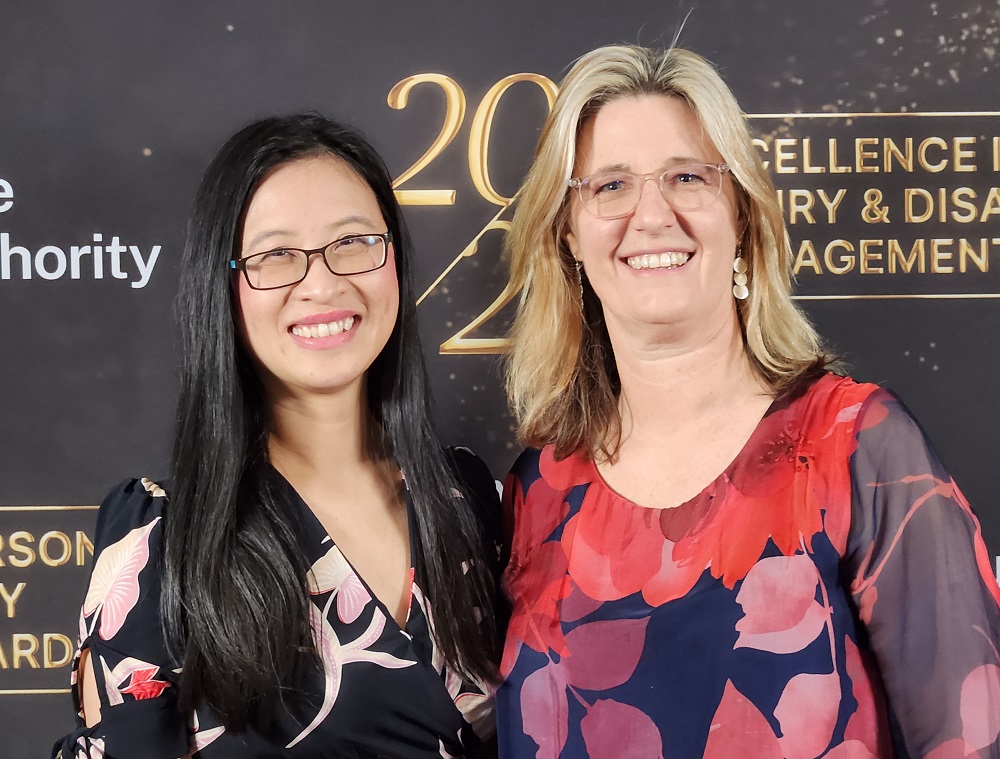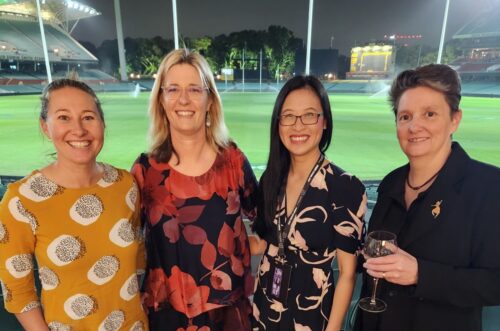
Spring has arrived and the ISCRR team are well underway with projects outlined in our 2023/24 Annual Plan. These include 22 research projects currently underway that span topics including building design to reduce occupational violence and aggression in residential care settings, clinical effectiveness of treatments for persistent pain, silica lung disease health screening, and using a systems-mapping approach to address workplace violence.
Our Annual Partner Satisfaction Survey has just closed and preliminary results have been pleasing. These results form part of ISCRR’s KPIs and are presented to the ISCRR Steering Committee. Findings will be made available via our Annual Report to be released later this year. We would like to thank Craig Barlow for his contribution to the ISCRR Steering Committee and welcome Emily Bogue, Director of Strategy, to the role.
Four members of the ISCRR team recently attended the Personal Injury Education Foundation (PIEF) National Summit in Adelaide, from the 29th – 30th of August 2023. Highlights included the Plenary 2 session on person-centred care in case management chaired by Dr Petrina Casey (SIRA). Speakers included Dr Mary Wyatt (It Pays To Care) and Dr Hugh Seward (WorkSafe Victoria) who shared their insights on how to deliver the best possible outcomes for injured workers.

ISCRR team attending the PIEF National Summit 2023, held at Adelaide Oval: (left to right) Dr Sarah Oxford, Dr Janine McMillan, Dr Kim Pham and Dr Sophie Pointer
Two themes had particularly robust discussion and debate at the Summit. First, how AI can be used to support claims managers to improve communication and support, as well as for addressing risk and prevention. Second, creating a nationally consistent service standard & support structure to improve return to work outcomes.
The ISCRR team was particularly impressed with how the Accident Compensation Corporation (ACC) in New Zealand are embedding Māori culture in their work to prevent injuries in the Māori working population and their families. They’re doing this by investing in a new cross-agency initiative focusing on system change allowing them to explore and evaluate how Māori knowledge (mātauranga) and practices can prevent injury and harm across a range of inter-related areas.
ISCRR found the Summit a valuable experience for provoking thoughts on future research opportunities and networking with our colleagues and partners.
Dr Kim Pham (top, above left) and Dr Janine McMillan (top, above right)
Acting Co-Directors of ISCRR